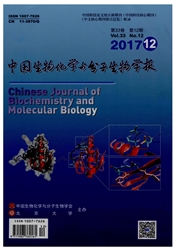

 中文摘要:
中文摘要:
随着基因组关联分析方法的应用,越来越多与胃癌相关的易感基因被发现.易感基因的多态性检测已逐步进入胃癌临床诊断和研究.然而,利用少量胃粘膜细胞开展单核苷酸多态性(SNP)分析对胃癌进行早期诊断常遇下述困难,一是少量胃癌细胞混杂在多种细胞中,异常信号常易被淹没,二是细胞量极少,因此获得的基因组DNA量微,进行多位点或全基因组分析存在困难.本文利用激光显微切割技术分选少量胃癌细胞,结合全基因组放大技术,进行胃癌相关的前列腺干细胞抗原基因(PSCA)的SNP分析.通过聚合酶链反应·限制性片段长度多态性(PCR-RFLP)和克隆测序方法分析,在分选的胃癌细胞中检测到P.sCA的rs2976392位点胃癌相关的“A”等位与rs2294008位点胃癌相关的“T”等位.研究结果表明,所采用的全基因组放大方法保真性高,经过分选的胃癌细胞中SNP位点的检测灵敏度和可靠性大为提高.所建立的少量细胞基因多位点检测方法将同样应用于其它肿瘤和组织的少量细胞研究中,全基因组放大产物也可进行高通量的基因芯片和第二代测序研究.
 英文摘要:
英文摘要:
With the applications of genome-wide association study (GWAS), more and more predisposing gene were identified in gastric cancer. The polymorphism detection of predisposing genes was applied in clinical diagnosis and research of gastric cancer. However, the detection was challengingwith limited samples, such as limited gastric mucosal cells for early diagnosis. With laser microdissection and GenomePlex library whole genome amplification methods, single nucleotide polymorphism (SNP) of the prostate stem cell antigen (PSCA) in limited pure gastric cancer ceils were studied. Using polymerase chain reaction-restriction fragment length polymorphism (PCR-RFLP) and sequencing method, rs2976392 and rs2976392, the predisposing mutations of PSCA gene, in microdissected gastric cancer tissue, were identified. The results showed that the sensitivity and reliability of predisposing mutation detection were greatly increased after pure gastric cancer cells isolation. Muhi-gene SNP detection methods for limited sample developed can be applied to the genetic analysis of other types of limited sample. Whole genome amplification products can also be used for high-throughput DNA microarray and next-generation sequencing analysis.
 同期刊论文项目
同期刊论文项目
 同项目期刊论文
同项目期刊论文
 期刊信息
期刊信息
